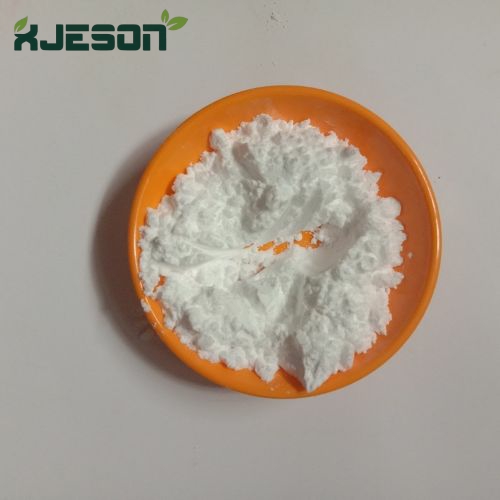Nicotinic acid
10 month agoWhat is nicotinic acid?
Nicotinic acid, also known as vitamin B₃ or Niacin, is a water-soluble vitamin belonging to the B vitamins. It plays a variety of important physiological functions in the human body, participating in energy metabolism, maintaining the health of skin and mucous membranes, etc. Niacin is one of the essential nutrients for the human body, and its deficiency can cause diseases such as pellagra. It is a white crystalline or crystalline powder, odorless or slightly odorous, slightly sour, and easily soluble in water. It can participate in a variety of metabolic processes, including energy metabolism, fat and protein synthesis. It is widely used in the fields of medicine, food, feed and chemical industry. It plays a variety of physiological functions in the human body and is an indispensable nutrient for maintaining health.

Functions and Applications:
Pharmaceutical raw materials: Nicotinic acid is used to treat health problems such as hypercholesterolemia, skin diseases, and schizophrenia. It has the effects of dilating small blood vessels, lowering blood lipids, reducing cholesterol synthesis, and dissolving fibrin. It can be used to treat peripheral nerve spasms, arteriosclerosis, and other diseases. Niacin can also be used as a pharmaceutical intermediate in the pharmaceutical chemicals fields to synthesize a variety of amide and ester drugs.
Food additives: Niacin belongs to the vitamin B family and is involved in the body's lipid metabolism, oxidation process and anaerobic decomposition process. In food, it is mainly used as an antioxidant and nutritional enhancer, which helps to delay the oxidation process of food, maintain the freshness and taste of food, and improve the nutritional value of food. The daily requirement of niacin for the human body is: 10-20 mg for adults and 4-11 mg for infants.
Feed additives: Nicotinic acid is an essential nutrient in the daily diet of pigs, chickens and other animals. It has physiological functions such as anti-inflammation, antioxidant, regulation of lipid metabolism and glycolysis, regulation of cellular energy status, and promotion of muscle fiber type transformation.
Specification Sheet
|
Product name |
Nicotinic acid |
|
Specification |
99% |
|
Other names |
Vitamin B₃ or Niacin |
|
Character |
White powder |
|
Cas No. |
59-67-6 |
|
Molecular Formula |
C6H5NO2 |
|
Molecular Weight |
123.11 g/mol |
|
Test method |
HPLC |
|
Introduction |
Niacin, also known as nicotinic acid, vitamin B3 or vitamin PP, is an indispensable member of the B vitamins. Its chemical formula is C6H5NO2, and its molecular weight is 123.11. It usually exists in the form of white or light yellow crystals or crystalline powder, odorless or slightly odorous, and slightly sour. Niacin is a water-soluble vitamin that is easily soluble in water and ethanol, but insoluble in organic solvents such as ether. Niacin is extremely stable in a dry state and is also highly resistant to light, air and heat, which allows it to maintain good activity during food processing and storage. |
|
Function |
As a component of coenzyme I (NAD+) and coenzyme II (NADP+), it participates in a variety of biochemical reactions in the body, such as energy metabolism, lipid metabolism, oxidation of tissue respiration, and anaerobic decomposition of carbohydrates. Niacin deficiency can lead to pellagra (also known as pellagra), a disease with skin, gastrointestinal and nervous system symptoms as the main manifestations. Early symptoms include indigestion, loss of appetite, diarrhea, constipation, apathy, drowsiness, dizziness and insomnia. As the disease progresses, lesions such as erythema, herpes, scabs and pigmentation will appear on the skin. Niacin has the effect of dilating peripheral blood vessels and can be used to treat headaches and migraines, and helps to reduce triglyceride concentrations in the body, prevent and relieve pain. Niacin can also promote blood circulation and skin health, assist the functioning of the nervous system, and the metabolism and digestion of carbohydrates and proteins. Niacin has anti-aging effects, can repair cell mitochondria, and maintain normal metabolism of the human body. |
|
Storage |
Store in cool & dry place. Keep away from strong light and heat. |
|
Packing |
25kg/drum Inside: Double-deck plastic bag, outside: Neutral cardboard barrel & Leave in the shady and cool dry place |
|
Shelf Life |
2 years when stored properly |
Similar Video Recommendation
If you are interested in the product, contact Bossgoovideo.com for more information
- *To:
- Xi'an XJeson Biotech Co., Ltd
- *Message:
-
Submit
Main Product:
Furit & Vegetable Powder,
Cosmetic Raw Material,
Pharmaceutical Raw Materials,
Flavors & Fragrances ,
Health Care Material,
Herbal Extract









